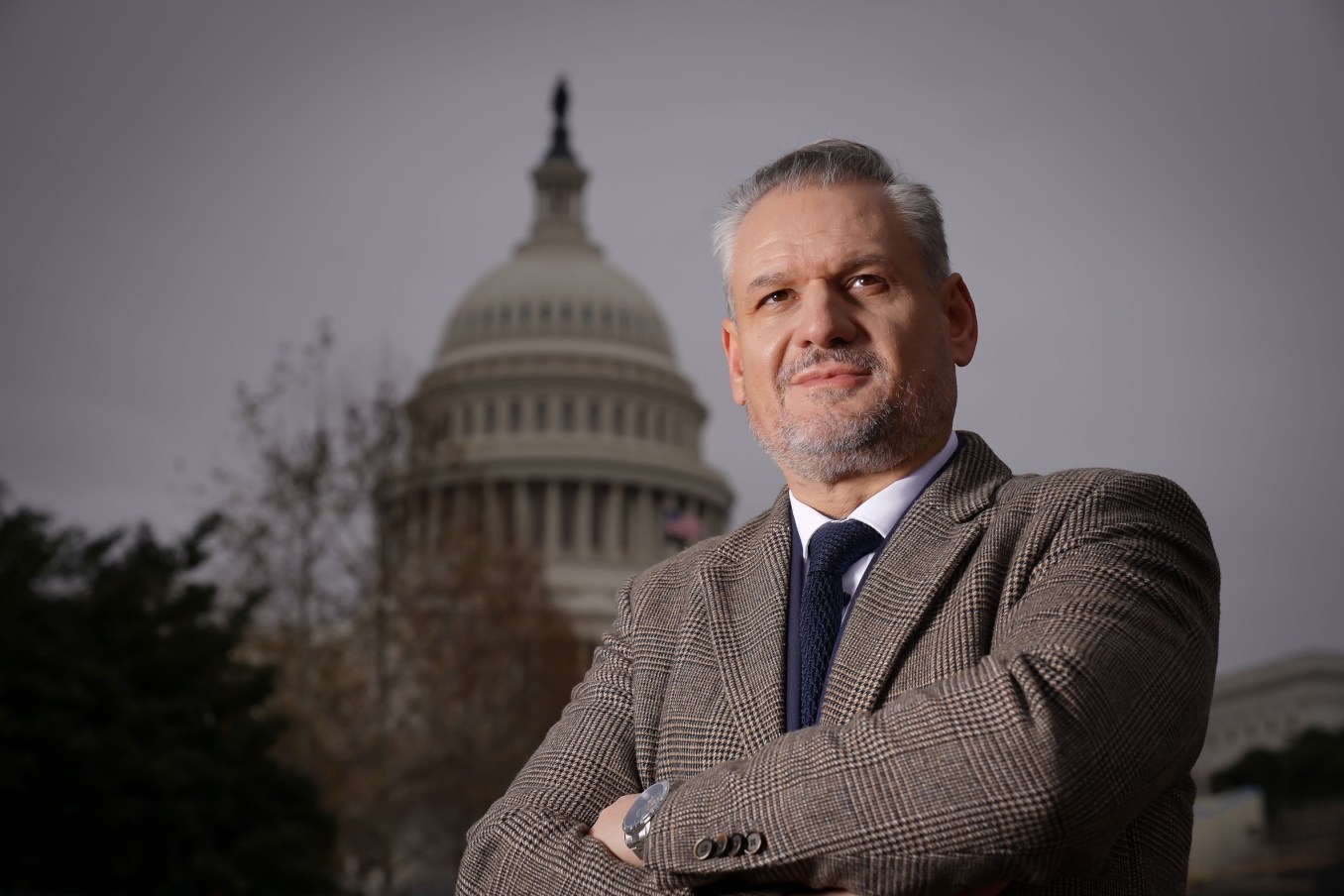What are the key priorities of the Hungarian government for 2021 and beyond, and how are these similar to the priorities of the new U.S. government?
Obviously, the world has completely changed since last March. We are facing a global challenge that defines the plans and maneuvers of all governments around the world. The Hungarian and the U.S. governments are no exception.
There are three priorities for the Hungarian government, and those are managing mass vaccination, gradually lifting economic restrictions and rebooting the economy. The vaccine is clearly the only way out of the pandemic, and now the most important task of the Hungarian government is to procure as many doses of the vaccine as possible. As soon as we have enough vaccines, we can launch the Action Plan to Reboot the Economy.
Before COVID-19, the Hungarian economy was one of the most stable economies in Europe with one of the highest growth rates. The pandemic has certainly changed many things; however, Hungarian economic results are still more promising than the results of other countries.
Since last March, we managed to protect 280,000 jobs in Hungary. After protecting the health and lives of the people, protecting jobs and the economy is the most important task. The number of Hungarians who had a job in December 2020 was the same as a year prior, while the unemployment rate is only 4.3 percent, which is the third lowest figure in the European Union.
The Economy Protection Action Plan consisted of defensive measures, while the Action Plan to Reboot the Economy is an offensive strategy to counter the economic crises caused by COVID-19.
The United States is one of the economies that has been most seriously hit. The new administration has a big task ahead of it to recover. They plan to vaccinate 100 million people in the first 100 days of the administration and implement a USD 1.9 trillion COVID-19 relief package as early as March, followed by a huge investment in infrastructure.
Our priorities are similar, and I believe this creates new opportunities for collaboration.
As a result of the coronavirus, companies might redeploy their manufacturing facilities. What is the goal of Hungary in terms of FDI, especially economic collaboration with American companies?
American companies, just like any other company from around the world, realized that the Hungarian government is very pro-business. Based on investors’ feedback, I can say that, regarding their investments, they always get very prompt and attentive answers from key Hungarian ministers, including Minister of Foreign Affairs and Trade Péter Szijjártó, Minister of Innovation László Palkovics and Minister of Finance Mihály Varga.
Investors consider Hungary a country with a pro-business government in the very lucrative European Single Market. Obviously, our goal is to further increase the export figures of Hungary, as well as FDI in Hungary.
It speaks for itself that the United States is the second-largest investor in Hungary after Germany. Out of 50 major US companies, 40 are present in Hungary and provide jobs for 105,000 Hungarians.
Before the pandemic, the unemployment rate was 3.4 percent in Hungary. In March 2020, we started to implement the Economy Protection Action Plan, under which 1,435 companies implemented investments totaling EUR 4.8 billion. Thanks to COVID-19 measures including incentive schemes, tax cuts and wage subsidies, the Hungarian government has helped companies protect investments. And American companies have created the most jobs since last March — 2,496 jobs in total, or 25 percent of all jobs created since the outbreak of the pandemic.
Once the government took office in 2010, we had very ambitious plans to create 1 million jobs in Hungary. Since then, we have managed to create 840,000 jobs in Hungary.
Many countries in Europe, and beyond Europe, provided social aid. Our approach was different; we focused on protecting people’s jobs instead. We are a work-based economy, and how we managed the crisis has proven that.
Looking at the latest U.S. investments, we see that BorgWarner invested USD 22.3 million and later an additional USD 14.5 million in eastern Hungary. Diligent Corporation decided to set up its new global R&D center in Budapest from an investment of USD 37,5 million and created more than 300 high added-value jobs. GE is another large American investor in Hungary and is looking to invest USD 11.1 million to expand its Digital Development Center in Budapest. IBM Client Innovation Center will also create about 300 jobs with an investment of USD 11.7 million.
Regarding trade and investment, we enjoy great cooperation with American companies, and I don’t expect this to change regardless of the political changes.
In 2019, the Business Promotion & Development Campus (BPDC) was established in Washington. BPDC was set up to provide Hungarian companies with a wide range of training programs, aiming to facilitate the entry of Hungarian companies into North America. How is the success of the center measured and what outcome should companies expect to achieve with this support?
Setting up the Business Promotion & Development Campus (BPDC) was a great decision. I believe it is completely in line with the new dimension of Hungarian trade and investment policies. In addition to promoting Hungarian exports and attracting FDI in Hungary, helping Hungarian companies invest abroad is the third priority.
The Hungarian economy has reached a high enough level to make some revolutionary changes and penetrate global markets. The U.S. market is highly developed and lucrative but very competitive at the same time. Hungarian companies need professional advice to successfully operate there. BPDC was established to meet these needs via the support of U.S. professionals. Companies can thus receive help on how to structure their business plans and successfully enter the market.
We already have BPDC alumni, and based on their feedback, BPDC is a great support. This reassures us that BPDC is a very good initiative, and we have strong intentions to keep it.
Why is the entry of Hungarian companies into the U.S. market important for both countries? Are there already use cases or best practices?
I believe the entry of Hungarian companies into the U.S. market is mutually beneficial. Once a Hungarian company has set foot in the United States, it might mean new jobs created in both the U.S. and Hungary. However, it is important to take into account that the U.S. market is changing due to COVID-19.
Hungary is also a high-tech partner of the U.S. in the space industry. An agreement has recently been reached between our countries. It focuses primarily on astronaut training and scientific experiments. What does this agreement mean for Hungary and how can Hungarian companies profit from this collaboration?
Space is a new area for Hungarian – US cooperation, in addition to traditional industries such as energy and security and defense. This would take the Hungarian economy to a new level. We need state-of-the-art and very innovative technologies and ideas, plus we need to take part in research that is conducted in space. Our goal is to send astronauts to space stations by 2025 or even earlier. We need the cooperation of major stakeholders to participate in international space research, and the U.S. is certainly a major stakeholder. Minister of Foreign Affairs and Trade Péter Szijjártó visited the United States last September and signed a cooperation agreement with American spaceflight company Virgin Galactic. Hungarian engineering knowledge is very evident, and Hungary already has an active cooperation with NASA. However, we also work with Russia and the Russian space agency.
NASA also already uses Hungarian-developed dosimeters. Trust is key in the space industry, and Hungarian developments are very reliable and do not malfunction, which certainly elevates our cooperation with U.S. space agencies and companies. We clearly would like to continue these partnerships.
On January 3, the Tristar Ruby LNG tanker shipped 143,000 cubic meters of LNG from the United States. What does it mean for Hungary to have the United States as a national gas supplier? Why do we need American gas?
It has long been a goal of the U.S. and Hungarian governments to create a higher level of energy security in Central and Eastern Europe. Hungary is right in the middle of Central and Eastern Europe, and we need the cooperation of a neighboring country that has a seaport to import American liquefied natural gas. That is obviously Croatia because it is the closest to Hungary. The goal of the Hungarian and Croatian collaboration was to develop the energy terminal in Krk, Croatia, and it was a historic moment when the terminal became operational.
For the first time in 70 years, we have managed to move from a regional gas market to an international gas market. It doesn’t mean that we won’t work with our previous partners, but it does mean we will have more options to negotiate gas prices in addition to ensure the security of our energy supply.
We encourage our partners in the East, such as Romania and the so-called Neptun Deep project, to be operational as well. If we could export gas from Romania, it would greatly contribute to Hungary’s gas-security ambitions.
The Krk terminal is a revolutionary step for energy security, and we hope that the new American administration will realize the joint, bilateral added value of that.
All in all, a new era started in January, but it requires the involvement of all parties.
You had to use a floating LNG plant instead of a land-based one because of environmental reasons. What is the focus of the Hungarian government regarding sustainability and energy policy?
Sustainability is key, and climate change is the most-defining global issue today. The U.S. government has placed climate issues very high on their agenda. The former secretary of state, John Kerry, will be responsible for international cooperation on climate. The new administration has already recommitted to agreements that were abandoned by the previous administration, and they have announced a wide range of climate events to underline the new American climate policy. The U.S. government is also planning to organize a major climate conference on April 22, Earth Day. Secretary of State Antony Blinken, the Secretary of Energy, the Secretary of Transportation and the Secretary of Agriculture all highlighted the importance of climate goals in relation to their agendas.
Hungary has also managed to fulfill the climate goals of the European Union. The EU has decided to cut carbon emissions by 55 percent from levels in 1990. The Hungarian government has reached its targets ahead of the EU average and is working toward achieving climate neutrality by 2050. To achieve this goal, we should remain nuclear, and, therefore, nuclear energy is a key part of our energy policy. The Hungarian energy mix will consist of natural gas, nuclear energy and renewable energy (solar energy). However, gas remains important.
Energy and sustainability are promising areas, where we can successfully work with the new American administration.



